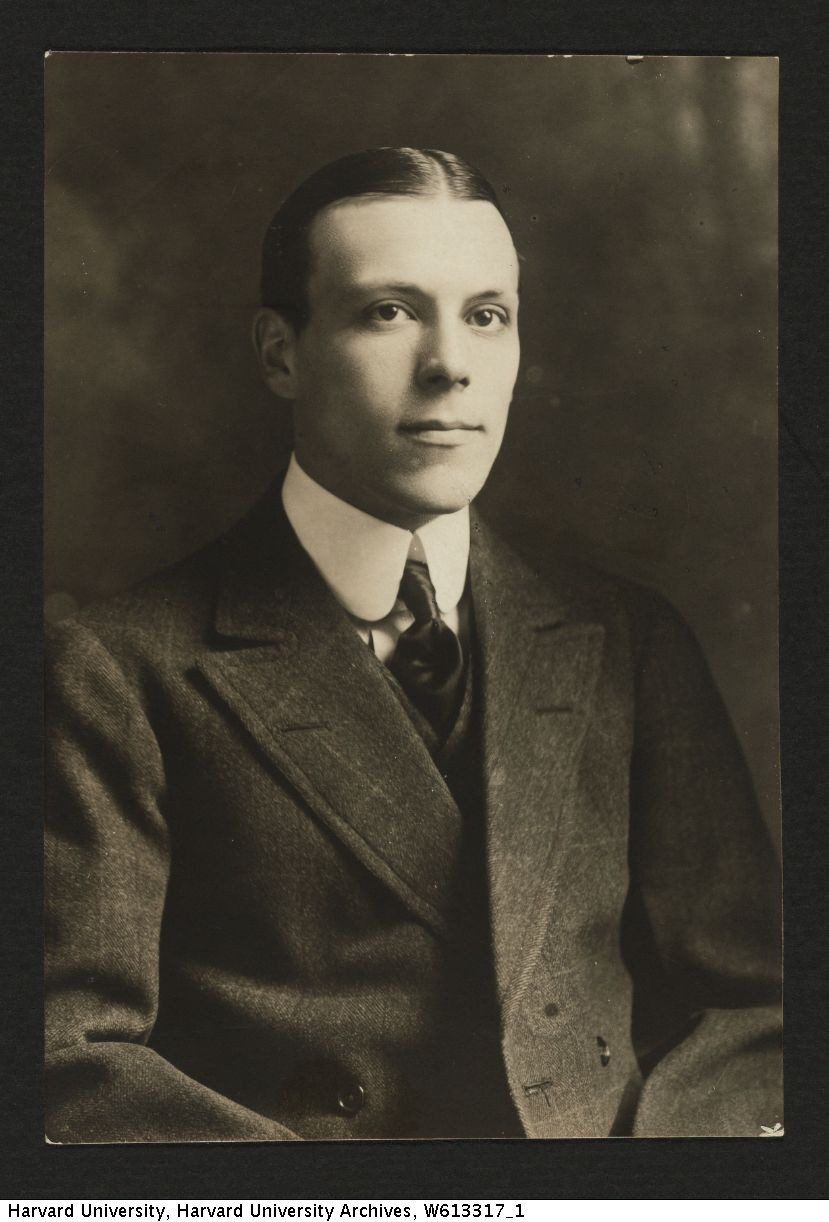Queer Places:
Harvard University (Ivy League), 2 Kirkland St, Cambridge, MA 02138
 Harry Elkins Widener (January 3, 1885 – April 15, 1912) was an American
businessman and bibliophile, and a member of the Widener family. His mother
built Harvard University's Widener Memorial Library in his memory, after his
death on the foundering of the RMS Titanic.
Harry Elkins Widener (January 3, 1885 – April 15, 1912) was an American
businessman and bibliophile, and a member of the Widener family. His mother
built Harvard University's Widener Memorial Library in his memory, after his
death on the foundering of the RMS Titanic.
Born in Philadelphia, Pennsylvania, Widener was the son of George Dunton
Widener (1861–1912) and Eleanor Elkins Widener, and the grandson of
entrepreneur Peter A. B. Widener (1834–1915). He attended The Hill School in
Pottstown, Pennsylvania, and graduated from Harvard College in 1907, where he
was a member of Hasty Pudding Theatricals and the Owl Club. Widener's
godfather was the British banking magnate, Charles Mills, the 2nd Baron
Hillingdon.
Along with his parents, in April 1912 Widener boarded the Titanic at
Cherbourg, France bound for New York City. As the ship sank Widener's mother
and her maid were rescued, but Widener, his father, and his father's valet
perished. In 1915, Widener's mother donated the Harry Elkins Widener Memorial
Library to Harvard in his memory. Two buildings at the Hill School are also
dedicated to Widener, and stained glass windows at St. Paul's Episcopal
Church, Elkins Park, Pennsylvania are dedicated to Widener and his father.
A Harvard legend holds that in order to spare others her son's fate,
Widener's mother insisted (as a condition of her gift) that future Harvard
graduates be required to learn to swim. However, while Harvard indeed
implemented a swimming test in the 1920s (later dropped), this had nothing to
do with Widener.[2]
Widener was a member of the Grolier Club.[3][4]
Book collector and dealer George Sidney Hellman, writing soon after Widener's
death, commented on
the excellence of his technical knowledge ...
His enthusiasm as a collector and his winning personality ...
afforded many opportunities of obtaining treasures whose acquisition
cannot be explained alone on the basis of the wealth which he commanded.
Had he not perished in the Titanic catastrophe, beyond question ...
his library would surely have eventually become one of the greatest
collections of books in modern times. [He] was not satisfied alone in
having a rare book or a rare book inscribed by the author; it was with him
a prerequisite that the volume should be in immaculate condition.[5]
My published books:


BACK TO HOME PAGE

- https://en.wikipedia.org/wiki/Harry_Elkins_Widener#References
 Harry Elkins Widener (January 3, 1885 – April 15, 1912) was an American
businessman and bibliophile, and a member of the Widener family. His mother
built Harvard University's Widener Memorial Library in his memory, after his
death on the foundering of the RMS Titanic.
Harry Elkins Widener (January 3, 1885 – April 15, 1912) was an American
businessman and bibliophile, and a member of the Widener family. His mother
built Harvard University's Widener Memorial Library in his memory, after his
death on the foundering of the RMS Titanic.
